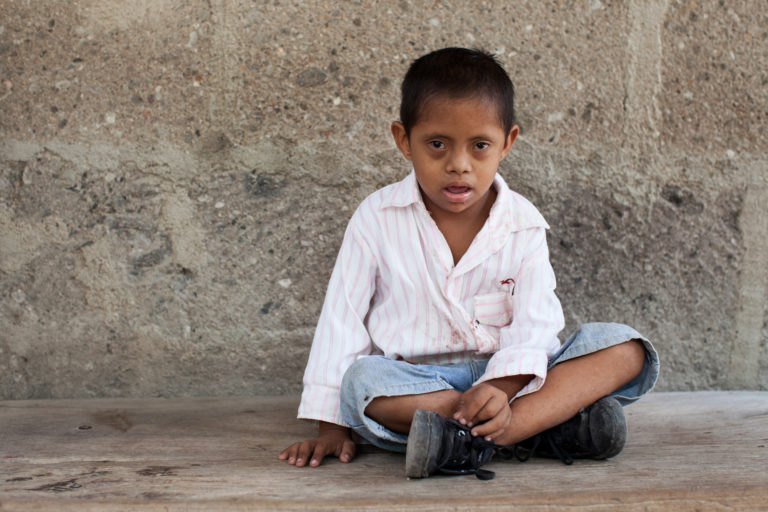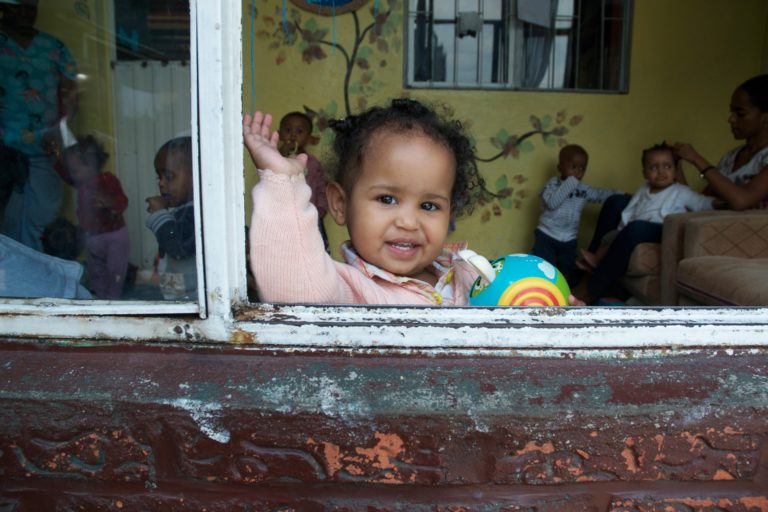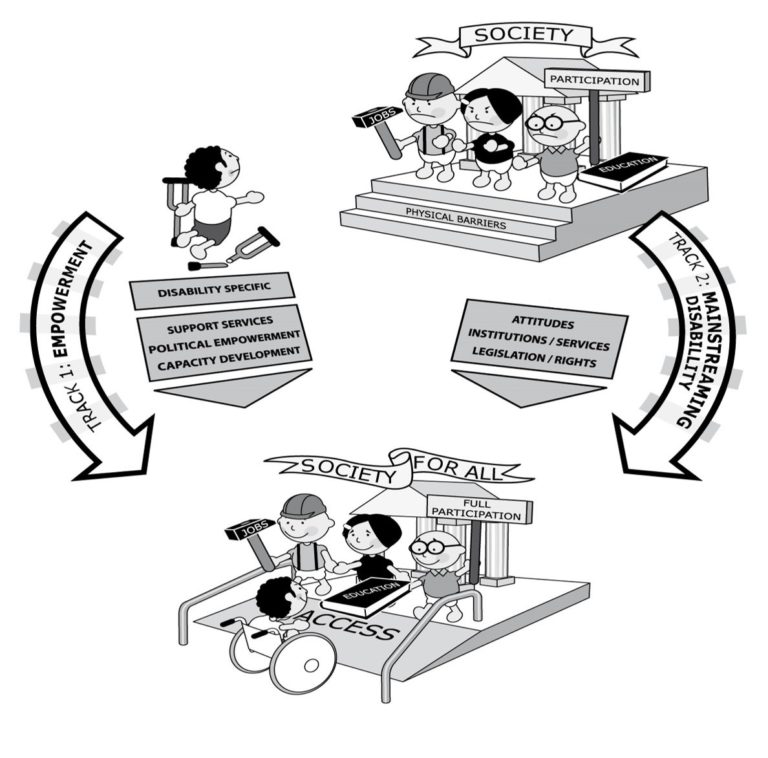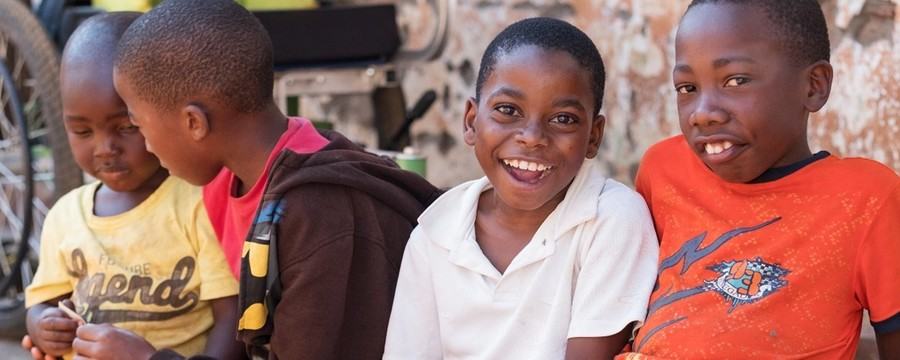The importance of early childhood development for children with developmental disabilities

Share this step
As discussed throughout this week, the first three years after birth are the most critical period of child development, and this is no different for children with developmental disabilities.
Impairments across different domains of functioning can disrupt a child’s development, but with adequate support and nurturing care, children with developmental disabilities have the opportunity to reach their potential and maximise their quality of life. Unfortunately, many children with developmental disabilities are overlooked when it comes to the importance of early childhood development and they are often excluded from mainstream interventions and programmes.1 In some cases, children with developmental disabilities may even been placed into institutions, away from public view and mainstream society.
In response, the World Health Organization have identified four rationale for investing in early child development policies and interventions for children with developmental disabilities:
Human rights rationale
Children with developmental disabilities are children first, with their own needs, wants and rights. As for all children, children with developmental disabilities have the right to thrive, not simply survive. This means that they have the indisputable right to participate fully in their families and communities, and access the services needed to help them achieve their potential. These rights are protected and advocated for by the United Nations Convention on the Rights of the Child and the United Nations Convention on the Rights of Persons with Disabilities. These Conventions mandate that governments ensure children with developmental disabilities have:
- the right to life and development
- their best interests respected
- the right to a life free of stigma and discrimination
- the right to participate in society
We will discuss these Conventions in further detail later in the course.
Economic rationale
If children with developmental disabilities do not go to school, their employment prospects are enormously reduced. At the same time, if parents do not receive support, they may have to stop working in order to care for their child. Ensuring that children with developmental disabilities receive appropriate support and early intervention will therefore reap economic benefits, for themselves, their families and society more broadly.
Children from lower socio-economic backgrounds are at a higher risk of developmental disability. If these children do not receive adequate support, they may not be able to contribute fully to society and their needs may result in higher costs for health and social care services. However, should children with developmental disabilities receive appropriate support and early intervention, they may be more likely to maintain their health, engage with and contribute to society. This will ultimately reduce the long-term costs for governments and families on education, treatment, rehabilitation and social services.
 Fernando lives in a very rural location with his twin sister and mother. © CBM/Harms
Fernando lives in a very rural location with his twin sister and mother. © CBM/Harms
Scientific rationale
As is the case for all children, the development of children with developmental disabilities is susceptible to negative environmental factors, such as poverty, parental interaction and access to services. There are, however, additional risk factors for children with developmental disabilities, such as stigma and discrimination, violence, abuse and neglect, institutionalisation, inadequate policies and inaccessible services. These risk factors can exacerbate the impact of impairment, which can have long-lasting consequences, such as an increased risk of poverty and marginalisation.1 Effective intervention in these early years will help children with developmental disabilities to thrive and participate in community life. Early intervention screening policies and services are needed to help children develop to their full potential.
Programmatic rationale
Effective intervention programmes will undoubtedly improve the rate of survival, growth and development of children with developmental disabilities, including improved language, mobility or social behaviours. Improved development will enable children with developmental disabilities and their families to engage more effectively with other programmes in the future, such as educational systems and community based rehabilitation. Effective development programmes may also give parents the time to take part in productive employment.
 © Holt International
© Holt International
Promoting development in children with developmental disabilities
Children with developmental disabilities need the same developmental support as non-disabled peers, and will need access to mainstream services, such as healthcare and childcare. However, as a result of their condition and impairment, children with developmental disabilities may also need specialised care, in order for them to reach their full developmental potential. This specialised care may include therapeutic services (e.g. physiotherapy), assistive products (e.g. hearing aids) or alternative methods of stimulation (e.g. non-visual stimulation techniques for children with vision impairment). This specialist care is discussed in more detail in Week 2.
Thus, supporting the development of children with developmental disabilities will typically require a twin-track approach, in which children and their families are supported to access both specialist intervention programmes and mainstream services.
 © CBM
© CBM
1. Disability specific services support and empower children with developmental disabilities and provide additional support for effective development. Disability specific services to support development for children with developmental disabilities include:
- Assessment and planning for early intervention
- Specialised early childhood intervention programmes
- Therapy services, such as speech and language therapy or physiotherapy
- Community based rehabilitation
- Family services, including parent groups
2. Mainstreaming disability within legislation, policies, programmes and healthcare access ensures disability equality. It is important that persons with disabilities are included in design, implementation and evaluation of inclusive mainstream services. Inclusive mainstream services to support development for children with developmental disabilities include:
- Inclusive early child development services, monitoring and prioritising child’s development during their most critical years
- Inclusive health care, enabling children with developmental disabilities to be treated for common illnesses, such as pneumonia or diarrhoea
- Inclusive social care, including social welfare and benefits, child protection systems and anti-discriminatory legislation
- Inclusive education, which will require staff training, accessible facilities and specialised education resources, all within mainstream schools
Throughout Weeks 2 and 3 of this course, we will look in more detail at the specific services and interventions raised in our discussion of the twin-track approach.
Discussion
Think about your role in supporting children with developmental disabilities, as a parent or healthcare professional, for example.
- How could you support the development of a child with a developmental disability?
- Are there mainstream services available that can support the development of children with developmental disabilities?
- Are there specialist services available that can support the development of children with developmental disabilities?
Share this
Integrated Healthcare for Children with Developmental Disabilities

Integrated Healthcare for Children with Developmental Disabilities


Reach your personal and professional goals
Unlock access to hundreds of expert online courses and degrees from top universities and educators to gain accredited qualifications and professional CV-building certificates.
Join over 18 million learners to launch, switch or build upon your career, all at your own pace, across a wide range of topic areas.
Register to receive updates
-
Create an account to receive our newsletter, course recommendations and promotions.
Register for free







